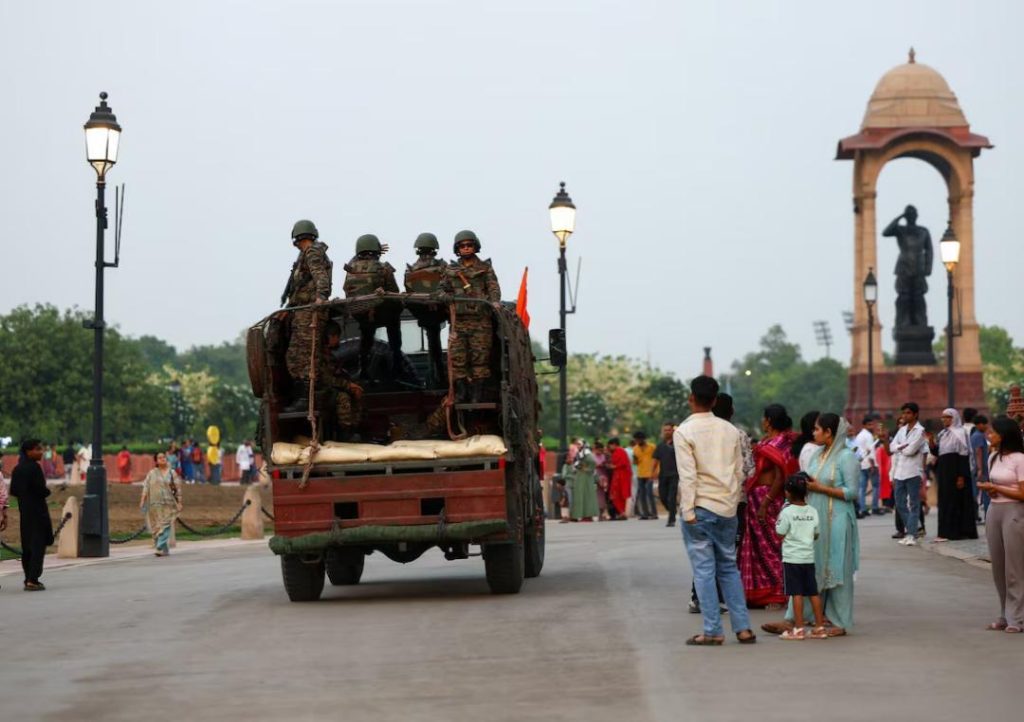
India Intercepts Pakistani Missile Fired Towards Delhi in Haryana: Reports
In a dramatic turn of events, India’s air defence system has reportedly intercepted and destroyed a Pakistani Fatah-II long-range missile that was fired towards Delhi in Haryana’s Sirsa district. The development comes as India and Pakistan continue to engage in a high-stakes game of military brinksmanship.
According to reports, the Pakistani missile was fired from an unknown location and was heading towards the national capital. However, India’s air defence system, which includes a combination of radars, missiles, and aircraft, was able to detect and destroy the missile in mid-air.
The incident has sent shockwaves across the country, with Delhi Airport issuing a statement assuring passengers that flights are continuing as scheduled and all operations are completely normal. However, the high alert level in the city remains, with security forces on heightened vigilance.
Meanwhile, India has reportedly targeted several key military installations in Pakistan, including the Nur Khan Airbase in Rawalpindi, and the Rafiqi Airbase and Murid Airbase in Punjab. The targets were reportedly hit by Indian fighter jets, which flew deep into Pakistani airspace.
The crisis began when Pakistan launched Operation Bunyan-ul-Marsoos, a military operation aimed at targeting Indian positions along the Line of Control (LoC) in Kashmir. India responded with Operation Sindoor, a counter-attack aimed at targeting Pakistani military installations.
The Fatah-II missile, which was fired by Pakistan towards Delhi, is a long-range missile with a range of over 100 km. It is capable of carrying a payload of up to 100 kg and is designed to target fixed and mobile enemy assets.
The Indian Air Force (IAF) has been on high alert since the crisis began, with fighter jets being scrambled to respond to any Pakistani incursions into Indian airspace. The IAF has also been conducting sorties over the LoC, targeting Pakistani military positions and infrastructure.
The India-Pakistan border has been tense in recent weeks, with both sides exchanging gunfire and artillery shells across the LoC. The situation has been exacerbated by the ongoing political tensions between the two countries, which have been strained since the Indian government revoked Article 370 of the Constitution, which granted special status to Jammu and Kashmir.
The incident has also sparked concerns about the safety of civilians in the region. Many have been forced to evacuate their homes and seek shelter in safer areas, while others have been left stranded in areas affected by the fighting.
The international community has been monitoring the situation closely, with several countries urging both India and Pakistan to exercise restraint and avoid any actions that could lead to further escalation. The United Nations has also called for a ceasefire and the resumption of diplomatic talks between the two countries.
In conclusion, the intercepting of the Pakistani missile by India’s air defence system is a significant development in the ongoing crisis between India and Pakistan. The incident highlights the high stakes involved in the conflict and the need for both sides to exercise restraint and avoid any actions that could lead to further escalation.
Source:



